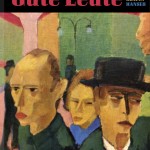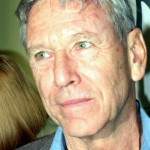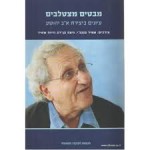There is a dual reality that is portrayed eloquently in the novel Good Pepole – Soviet Russia on the one hand and Nazi Germany on the other. The writing aspires to deal with great events and succeeds in fulfilling its expectations completely and with amazing talent. There’s something grandiose about this novel, it’s a sort of architectural structure that is monumental in my eyes.
The story begins with the Night of Broken Glass (Kristallnacht) which took place in Germany and proceeds in describing the life under Stalin’s horror regime, and so continues to alternate between Germany and Russia, until it reaches the crucial meeting between the German hero and the Russian heroin that takes place on the eve of the Nazi invasion to Russia. There are many accurate and sharp observations regarding power mechanisms and regimes along with a sober look on people – “good people”, which generate horrors.
I cannot recall another Israeli author that tried to deal with these subjects. Nir Baram contends with one of the darkest chapters of world history in a way that seems to me as a heroic enterprise. This is also what makes this book a unique one-time occasion in the Israeli literature field.
(Nili Mirski, Haaretz)
Read More...







 Go up
Go up